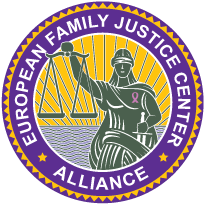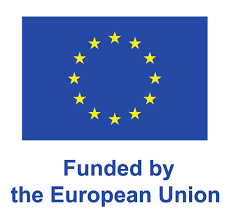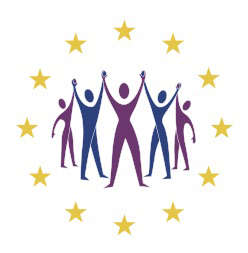Monday 20 November 2023
Report of the conference in Amsterdam ‘Femicide & Intimate Terror within Gender-based/Domestic Violence’
The 1-day conference for professionals from the judicial and health care sector, was organized by the municipality of Amsterdam, the Blijf Groep, police of Amsterdam and the European Family Justice Center Alliance. Main focus was providing knowledge on the basic principles, dynamics and impact of femicide, intimate terror & non-fatal strangulation. The goal was ultimately to provide all participants with the necessary tools to recognize in an early stage these forms of violence, to discuss it, to provide the right support and to conduct criminal investigation.
Over 300 professionals attended the conference live and over 200 attended the conference online. The event can be viewed by using the following links:
09.30 – 12.15 (before lunch)
https://youtube.com/live/n5Llx3dLeFI?feature=share
13.00 – 16.00 (after lunch)
https://youtube.com/live/dF61EJoI55I?feature=share
Facts of Femicide
Femicide is the intentional killing of women or girls. In most cases, partners or ex-partners are the perpetrators and it is common in situations where there is ongoing gender-based and/or domestic violence. Perpetrators often act out of revenge, jealousy or because they cannot accept that their relationship is over and that their ex- partner is moving on with someone else.
Unfortunately, femicide is still a major underexposed problem worldwide. Many professionals still do not have sufficient knowledge and tools to recognize and/or acknowledge the risk of femicide. Early detection and providing the right help and support in time to possible victims and their relatives significantly reduces the risk of a fatal outcome. The risk of femicide is greater in relationships where there is intimate terror.
There are different profiles within domestic violence and within these profiles is intimate terror the most dangerous form. It is characterized by a pattern of strong control and coercion by one of the partners towards the other. This can manifest itself in isolating, humiliating and intimidating the partner to serious physical, psychological and/or sexual violence.
Intimate terror has a very high risk of serious physical or psychological damage and even fatal outcomes. Victims of intimate terror also often experience non-fatal strangulation, one of the deadliest forms of gender- based and domestic/sexual violence.
The consequences for victims are enormous: unconsciousness occurs within seconds and can lead to death within minutes. Strangulation is the ultimate form of power and control in which a perpetrator shows that he or she decides to decide on the victim's last breath. Non-fatal strangulation has devastated psychological and medical consequences and a very high risk of eventual fatal outcome. It is much more common than generally believed. And even if we do identify it, far too little action is taken.
Photo impression
Downloads/Hand-outs conference
- Position paper Barbara Godwaldt (NL)
- Visible signs Victims of Strangulation (EN)
- Factsheet Intieme Terreur (NL)
- Factsheet Intime Terrorism (EN)
- Factsheet EIGE on Femicide (EN)
- Flyer Niet-fatale verwurging (NL)
Presentations of speakers
Opening by Nathalie van Waterschoot, a survivor on intimate terror & welcome by Alexander Scholtes, alderman Care and Social Development municipality of Amsterdam. The conference was closed by Femke Halsema, mayor of the municipality Amsterdam.
Katinka Lünnemann, sr. researcher at the Verwey-Jonker Institute and author of ‘Verschillend Perspectief, Samen Kijken’ (Different Perspective, Looking Together)
Correlation between intimate partner violence, violence against women and child abuse in the Netherlands
- Presentation (download pdf) - NL
Barbara Godwaldt, on behalf of the group of femicide survivors — author of ‘Aanpak Femicide – Twaalf concrete actiepunten om femicide terug te dringen’ (Tackling Femicide – Twelve concrete action points to reduce femicide)
- Plan van Aanpak Femicide (download pdf) - NL
Catherine White, forensic doctor and medical director of the Institute for Addressing Strangulation & the Sexual Offence Medicine Lead for the Faculty of Forensic & Legal Medicine, UK. Non-fatal Strangulation
- Presentation (download pdf) - EN
Jane Monckton-Smith, Expert in Femicide & Coercive Control. Developed the ‘Homicide Timeline’, an 8-step plan in the process of intimate terror & coercive control. Author of ‘In Control: Dangerous Relationships and How They End in Murder’
In Control: Dangerous relationships and how they end in murder.
- Presentation (download pdf) - EN


